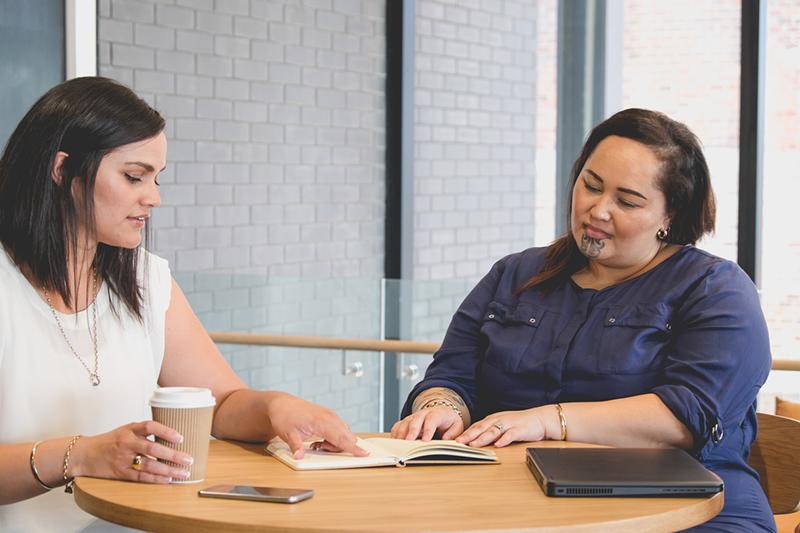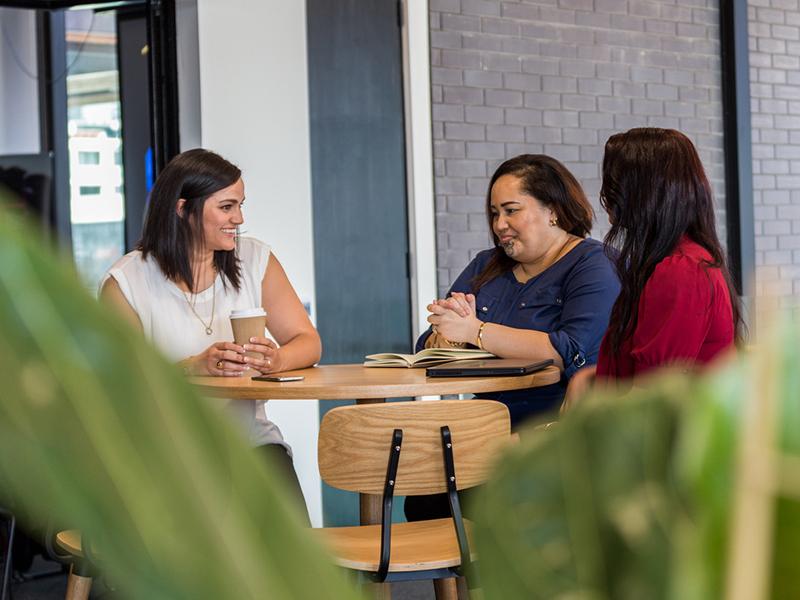Students who didn’t thrive at school often need a different kind of support when they arrive at university. These students may have left secondary education before completion or they may be returning to study after a few years working. A range of personal or social reasons lead students to leave school prematurely but, suffice it to say, school did not work out for them.
They often need an alternative pathway to meet university entry criteria, one that is culturally grounded, welcoming and empowering – and crucially makes the student experience different from school, even though they will fundamentally still be in a classroom environment.
How to ensure all students are prepared for higher education
Our university’s Certificate in University Preparation (CUP) programme, which runs over a single semester of study, rests on three key concepts to ensure students are prepared for higher education. They will be familiar with the workload expectations and the physical and online learning environments, reducing the culture shock of transitioning to degree-level study. Two are Māori cultural principles – Manaakitanga and Whanaugatanga – while the third is creating a distinct learning environment.
- Use welcome workshops to build student belonging
- How civic arts programmes can make students feel welcome
- THE podcast: what Indigenous knowledge brings to higher education
Manaakitanga and Whanaungatanga underpin our university’s values. Manaakitanga refers to the care of others, hospitality, ensuring people are safe and have what they need. Whanaungatanga, which comes from whānau (meaning “family”), refers to a sense of belonging, togetherness and kinship, as well as bonds of shared experiences and working together.
Manaakitanga
One of the most intimidating aspects of the transition into tertiary education is the scale of first-year classes. It can feel impersonal; nobody knows your name or cares whether you are engaging and coping. Academic staff can seem distant and are rewarded more for their research outputs than for the design and delivery of courses. First-year students can be treated as less of a priority.
By contrast, CUP teachers have manaakitanga written into their position descriptions. Some teachers have specialist roles to advise a cohort of students. Time is allocated for them to meet each student before starting the course and monitor their engagement with their academic work. The intention is to have timely interventions that can nip issues in the bud before the problems become more complex.
Whanaungatanga
University can be intimidating and impersonal, especially for students who are not confident in their academic ability or experience social anxiety. CUP class sizes are capped at 15 to 50 enrolments. Where classes are above 30 students, the tutorials and workshops are split to allow more discussion without being intimidating. Classes are often flipped, and activities are designed to be more interactive and facilitate working together in small groups.
A common room, where previous CUP students who have entered their degree courses are also welcome, helps students to see that university study is possible and allows them to see themselves in that environment, personally and culturally. Māori and Pacific students have specialised advisers and the space is decorated to acknowledge their heritage. Photos of CUP students, past and present, hang on the walls and social activities, always involving food, are held in the space. The intention is that every student will know a few peers as they transition into their large first-year classes.
Distinguishing higher education from high school
The goal in creating a welcoming environment is to not replicate the high school experience, despite the common elements.
In the first instance, control shifts from teacher to student. Students choose to be present. They are not compelled to come to classes – and blended options are available – but they are encouraged to attend because participating in person in an interactive class is hopefully more enriching than learning online.
The hierarchical relationship between students and their teachers is broken down as much as possible. Students and teachers use each other’s first names. Students are encouraged to challenge teachers, and no questions are considered too simple.
The curriculum is purposefully laid out, and the relevance of each subject choice and study task is justified in relation to students’ future aspirations. Tasks are broken down to encourage depth of learning and make clear why academic tasks are done in a particular way, and why accuracy, argument and referencing are important in academic culture. Students are expected to personally and critically reflect on facts and how to apply theory in life and in a lab.
Furthermore, CUP is delivered using block teaching methodology. Instead of the traditional four courses delivered over 12 weeks, randomly scattered through a weekly timetable, CUP students take two courses at a time, delivered over six weeks. Courses are taught in longer time blocks on one day, followed by their second course the following day. The blocks are more efficient, allowing students more free time to pursue part-time work or focus on other life demands. Students find the competing demands of two courses more manageable than four. The pace of six-week block delivery forces students to focus on their studies from the start.
This methodology improved CUP pass rates significantly and has slightly improved performance in first-year GPAs, despite the first year being delivered in the traditional format.
We offer a soft landing into higher education. The 2017 Academic Review of CUP reported a student describing CUP as “getting into the pool at the shallow end”. A warm welcome and a feeling of belonging go a long way to encourage our students to re-engage with their learning. A sense of personal control and seeing themselves in this university encourages their independent work ethic.
After all, they are here to do it for themselves, their whānau and their future.
Gareth Morgan is the manager of student transitions and engagement at the University of Canterbury, New Zealand.
The University of Canterbury is the host of THE Campus Live ANZ “Local roots to global reach: Shaping ANZ universities’ future” on 2-3 September 2025.
If you would like advice and insight from academics and university staff delivered direct to your inbox each week, sign up for the Campus newsletter.




comment